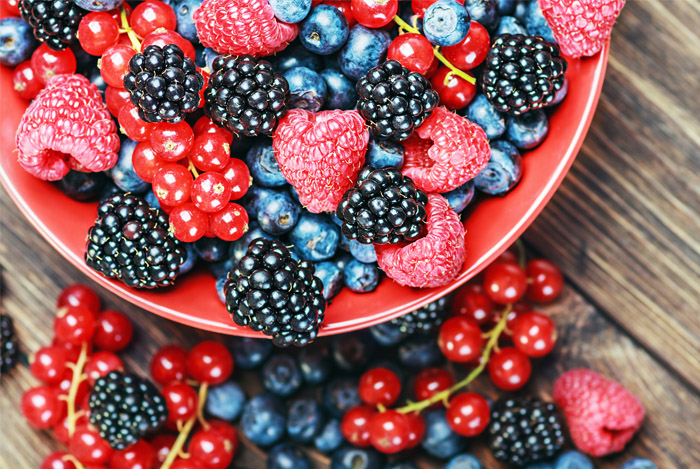Like nearly a third of all Americans, you may be looking to lose weight. And, if you look online or on TV, you’re likely to be bombarded from all directions with countless surefire methods of weight loss.
The weight loss market is flooded with supplements all boldly claiming to be natural and safe.
And some of them have some pretty solid merit. There’s plenty of user testimonies, people swearing it worked for them and it’ll work for you. Some of them even have solid evidence backing up their efficacy.
But maybe you’re not sure which one to choose. Or worse, because of how uncertain you are of whether you’ll be wasting your time, you may be afraid to choose any type of weight loss supplement at all.
One of the methods that has been touted as the next miracle drug for weight loss is taking raspberry ketones. Because they come from raspberries, which have been shown to have great health benefits on their own, people are quick to assume they must be great for weight loss as well.
It’s always my goal here to get to the truth of everything I cover. And because raspberry ketones are still growing in popularity, I think it’s time we looked a little further into them.
What Are Raspberry Ketones?
 Raspberry ketone is a chemical derived from red raspberries that proponents claim is beneficial for your metabolism. It can also be found in cranberries, kiwis, and blackberries.
Raspberry ketone is a chemical derived from red raspberries that proponents claim is beneficial for your metabolism. It can also be found in cranberries, kiwis, and blackberries.
Inside each raspberry are around 200 molecules that contribute to that distinct raspberry flavor. Raspberry ketone was singled out by food manufacturers decades ago because of its potent, distinct smell and flavor. It’s what gives raspberries their unique taste.
Raspberry flavored candy, along with scented soaps and candles, use raspberry ketone. But its alleged health benefits have only just begun garnering public attention.
These days, raspberry ketone and its supposed metabolism-boosting effects are being sold as weight loss drugs. Some people even use it by applying it to their scalps to promote hair growth.
But it doesn’t all actually come from raspberries. The natural amount of raspberry ketone in berries is actually very low, so in order to raise the potency, a growing industry has developed around producing the molecule.
So now, the substance people take is no longer naturally occurring, instead it’s being artificially produced. If you were to actually extract the ketone from the berry itself, you’d need around 90 pounds of raspberries to get the amount needed for a single dose.
This would be no cheap task, as a single kilogram of the natural substance costs as much as $20,000.
Something is sparking this growth in popularity. So what exactly are people saying?
The Claims
 From the get-go, raspberry ketones seem like they’re all promise and no pay-off.
From the get-go, raspberry ketones seem like they’re all promise and no pay-off.
Proponents of raspberry ketones claim they cause the fat within cells to be broken down more effectively, helping the body burn fat faster. They’re also purported to boost your metabolism, eliminate hunger pangs, ‘increase vitality’, prevent fat oxidation, and tone your body.
The raspberry ketones come in a supplement pill form, a typical dose being around 100 milligrams to be taken once or twice a day, which is supposed to lower risk of obesity and help greatly in making exercise and dieting more effective.
The pills themselves can be bought in bottles at most online health stores for around $20 a bottle, and have been featured on one of the more infamous and questionable health guru’s TV programs, helping to boost their popularity.
One website claims: “Raspberry ketone, along with sensible eating and exercise, could be the thing that finally makes that scale show significant weight loss”.
Another supporting website says that diet plans rarely, if ever, work. This is because we actually “need more healthy enzymes and natural ingredients to get a healthy body. That is why a nutritional supplement contains only extracts of a specific fruit or plant, which is a hundred times more powerful than the fruit itself”.
A lot of the appeal for the product comes from the word “ketone”, which is associated with low carb diets I’ve covered in the past.
The only problem with this: raspberry ketones have absolutely nothing to do with low carb diets and will not have the same effects on your body.
So, what is the actual evidence on the effects of raspberry ketone?
The Evidence
 Unfortunately, there is no evidence. At least, not for you and me.
Unfortunately, there is no evidence. At least, not for you and me.
There have been no clinical trials done on human beings to determine if raspberry ketones have any effect in aiding weight loss.
“Further high-quality research is needed”, said Catherine Ulbricht, senior pharmacist at Massachusetts General Hospital in Boston.
Researchers have become more interested in the structure of raspberry ketone and have begun studying it further in the past decade. They noticed how similar it looked to capsaicin (the molecule that gives chili pepper its kick) and synephrine (a stimulant).
Studies in the past have shown that these two molecules are effective in boosting metabolism, which led to the assumption that raspberry ketones could possibly show similar results.
However, only a few studies have been done to look at the effects of raspberry ketone as a potential weight loss drug, and all of these were done on mice or individual cells.
In 2005, a mouse study found that raspberry ketone prevented weight gain in the liver and of visceral fat (also known as belly fat) that surrounds organs.
These mice were fed a fattening, unhealthy diet. Some were given raspberry ketones, some were not. The mice who had the raspberry ketones did not lose weight, they merely gained less than expected while on the awful diet.
And, to further minimize the promise of the results of the study, the doses given to the mice were huge. For a human to reach these levels, they would have to take 100 times the recommended dose. That would be extremely unwise.
What could happen if you took more than the recommended dose, you ask?
In 2014, a 24 year old woman named Cara Reynolds suffered a heart attack and died after taking an overdose of raspberry ketone, which amounted to the same amount of caffeine as more than two cans of the Red Bull energy drink.
Another study in 2010 published in the Journal Planta Medica found that raspberry ketone caused fat cells in rats to secrete more of the protein adiponectin – a protein commonly found in low levels in obese people or type 2 diabetics.
The researchers also found an increase in the rats of lipolysis (the breakdown of fat), by making the cells more sensitive to the effects of the fat burning hormone norepinephrine.
But, reiterating the message of the cautionary tale of Cara Reynolds, it should be noted that just because the raspberry ketones had this effect in isolated fat cells from rats, does not mean the same thing can happen in a living organism, and the research has not been sufficient to indicate the truth of this either way.
Despite the shaky foundations, the United States Food and Drug Administration has placed raspberry ketones under the Generally Recognized as Safe (GRAS) category when it’s used as a food additive.
This is, however, a status given under the assumption that people won’t take any more than 2 milligrams per day. Many of the weight loss pills containing raspberry ketone these days pack a lot more than this amount.
None of this is really coming across as very convincing, is it? But, you might still be interested to know that it hasn’t exactly been shown not to work.
Should You Try Raspberry Ketones?
 Probably not. At least, not until significantly more evidence comes to light that can provide guidelines for the supplement industry.
Probably not. At least, not until significantly more evidence comes to light that can provide guidelines for the supplement industry.
Because there have been no human studies performed, it’s impossible to gauge what a proper dose might be for an average person, and how effective it would really be.
The only studies related to weight loss have been small, on animal cells, and have not since been reproduced. This sort of scientific inquiry is extremely important when it comes to your health, and I really wouldn’t want to recommend that you take something based on so little evidence.
In fact, there is evidence that taking raspberry ketone might actually be bad for you.
Catherine Ulbricht of Massachusetts General Hospital, who I mentioned earlier, said: “Raspberry ketone may lower blood sugar levels and decrease the risk of bleeding”. This means that diabetics especially should be cautious and monitored carefully by healthcare providers when taking these kinds of supplements.
Raspberry ketone could also cause increased blood pressure, heart palpitations, shakiness, and changes in the inflammatory response of the body.
But I get it – you still need to lose weight. So what can you do?
Companies that sell these sorts of questionable supplements most often suggest that it’s impossible to lose weight by diet and exercise alone. They claim that the only way to demonstrate any results is with the addition of their product to your daily routine.
This just plain isn’t true. The real, most effective way to lose weight is through using up more calories than you take in.
The Centers for Disease Control and Prevention (CDC) recommend that you eat 500 to 1000 fewer calories each day and get about 60 to 90 minutes of moderate exercise most days of the week if you want to successfully lose weight.
This is the only truly natural way of losing weight. Eat less, and burn more calories. This is at the heart of any successful diet, and can be achieved without the added cost of cleverly marketed supplements.
There are existing diets that can help this happen. Through a well-balanced meal plan, perhaps one like the Mediterranean diet, you can achieve guaranteed weight loss results over time, without any tricks or twists.
The Final Word
 So, until I see more evidence, my answer is: no, raspberry ketones cannot help you lose weight.
So, until I see more evidence, my answer is: no, raspberry ketones cannot help you lose weight.
Before you consider taking raspberry ketones or something like them, consult with your doctor and look into the research that has been performed on those supplements. The last thing you want to do while trying to lose weight is to further endanger your health and well-being.
As always, be careful and be smart when it comes to your health. Don’t believe everything you see on TV or read on the Internet – even what I tell you – without checking sources and finding out what the experts have to say.
And maybe one day there will be a miracle weight loss drug. But until then, it’s up to you to stay healthy.
Have you tried raspberry ketones? What did you think? Let me know in the comments section below!
The post Do Raspberry Ketones Work For Weight Loss? appeared first on Nutrition Secrets.
http://www.nutritionsecrets.com/raspberry-ketones-weight-loss/
No comments:
Post a Comment